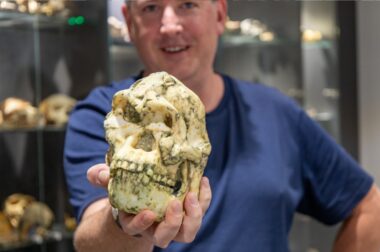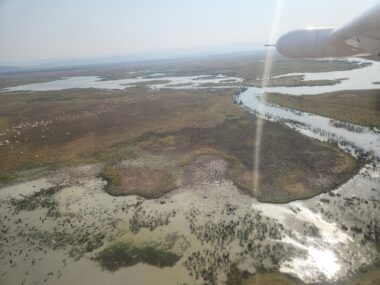Two of La Trobe University’s leading Myalgic Encephalomyelitis (ME) researchers were awarded grants worth $720,000 to conduct further studies into the condition.
The funding from the Mason Foundation, announced today, will help find solutions to ME, also referred to as chronic fatigue syndrome.
Two of La Trobe University’s projects were selected for funding from the foundation’s $1.4 million 2024 research grants program.
The studies will examine how signatures from the gut microbiota, immune system or peripheral blood cells could be used to diagnose or develop treatments for ME or Long COVID.
Professor Paul Fisher said ME and Long COVID were poorly understood but devastating illnesses, which did not have definitive diagnostic tests or effective treatments.
“Both of these projects at La Trobe will help to address these deficits,” Professor Fisher said.
“The project my group is working on will reveal if the molecular and cellular signature of ME is evident in blood cells from post-COVID ME patients.
“It will reveal whether non-COVID and post-COVID ME are the same illness, and it will give us insights into how these diseases work.”
Research Officer Microbiology, Anatomy, Physiology and Pharmacology Dr Daniel Missailidis said his team would investigate symptoms of ME more holistically by analysing the gut and blood of patients with new technology.
“We want this research to lead to the development of a diagnostic test and the discovery of treatments that will help a large community that is sadly too often left behind,” Dr Missailidis said.
“These grants will allow us to conduct essential research in these areas, which will give us a greater understanding of how different body systems interact with ME.”
Professor Susan Dodds FAHA, Senior Deputy Vice-Chancellor and Vice President (Research and Industry Engagement) congratulated the researchers on their grant.
“These prestigious grants reflect the high calibre of health and medical research at La Trobe, which is making a real difference to the lives of Australians and communities worldwide,” Professor Dodds said.
The Mason Foundation was one of the first philanthropic funders to recognise the importance of ME research, with funding going directly to solving the ongoing challenge of this elusive illness, which can have a devastating impact on people’s lives.
Since establishment, the Mason Foundation has awarded more than $26 million of research funding for ME and Alzheimer’s disease.
Contact details:
Elaine Cooney
[email protected]
0487 448 734


